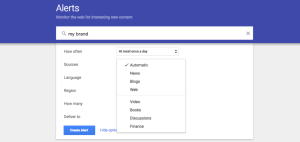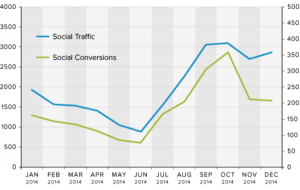The COVID-19 pandemic has bought the entire world to a standstill. Countries around the world had to initiate lockdown to curb the spread of this virus but at the same time, it affected various businesses and millions of jobs were at stake. In order to sustain during these hard times, organizations had to shift from their conventional business model and adopt the online way aided by cloud technology.
The concept of remote teams came into existence at large and various tools flooded the internet to help them collaborate in real-time. By implementing these tools, organizations were able to keep up their operations even amidst the ongoing crisis and saved millions from losing their livelihood. However, managing remote teams is not an easy task at all. Even if things may look to head in the right direction there exist various obstacles that as an employer you cannot afford to overlook.
These issues hinder the performance of your employees working remotely and if they aren’t attended on time it may lead to disengagement which is really not desirable for a growing business.
So, in this article, I’ll be helping you identify some of these issues and also tell you about the ways to mitigate them to keep a healthy work culture even if your employees are working remotely.
Let’s dive in!
Remote Team Issues to Keep in Check for Successful Business Operations
1. The Feeling of Being Isolated
We are all social beings and we like to stay close to people with whom we can share our thoughts and spend time. However, the pandemic has forced everyone to stay within our homes and disrupted our social connections making us feel isolated.
The same is happening with employees too, staying away from their usual work environment and peers is contributing to their feeling of isolation. This is greatly affecting their engagement at work as well as taking a toll on their mental health.
As a responsible employer who is now managing a virtual team, you must take every measure to keep this issue at bay. One way to mitigate this issue is by creating a virtual community for your employees and encouraging them to communicate over it. Allow your employees to engage in informal conversations with their peers just like they often do in the workplace. Doing this will help them strengthen their professional bonds even if they aren’t close and keep them motivated in the long run.
2. Decreased Motivation due to Untimely Recognition
In today’s date, employees value recognition for their accomplishments more than a handsome paycheck. When they know that their contributions are acknowledged they feel uplifted which ignites their zeal to deliver even better results.
However, most employers either miss out to plan or don’t have proper tools in place to instantly recognize their remote employees. When employees don’t receive any recognition for a long time, they tend to lose their interest in their work. Further, it raises the risk of employee attrition for which organizations often lose out their best talents.
The answer to this issue is now present in the form of various cloud-based employee rewards and recognition systems. With such a system in place, employers can recognize and reward employees irrespective of their locations. Most of these systems also allow peer appreciation which is vital for boosting the team spirit.
3. Ensuring the Wellbeing of your Remote Employees
Employee wellness is becoming a matter of concern for employers around the world. Especially in times like these, ensuring that your employees stay healthy and fit should be a top priority in your management checklist.
Since employees are hardly going around or doing any physical activity they are more prone to various health ailments than ever. But having some kind of employee wellness program combined with meaningful incentivization can help your employees here. These programs aim to encourage employees to take up a healthy lifestyle for enhancing their productivity.
Even if your employees are working remotely they shouldn’t be deprived of such programs. The same cloud-tech which is supporting remote work also facilitates you to run virtual health challenges that can be easily done within the comforts of their home.
4. Building a Robust Communication Regime
The efficiency of your virtual teams depends largely on the quality of communication they are having with their peers and the management. Since everyone is scattered across different locations you have to make sure that they are in sync with each other. Unlike in the office, you cannot just go up to employees and convey the information. You have to ensure that everyone is able to receive and send information in real-time for which various tools are available now.
5. Flexibility
With most people working from home, they now have to juggle between their work-life and personal lives simultaneously. Keeping your employees occupied with work thinking that they’re able to do it just because they are at home would be very wrong. Also at the same time, you must allow them some flexibility in work timing so they can take care of their homely chores so that they don’t have anything to worry about while they are working.
Doing this would really help your employees stay engaged and will also allow them to enjoy a great work-life balance.
6. Building Team Work
Another thing that gets affected the most when your employees function staying apart from each other is teamwork. When you have employees working remotely they miss out on the human connection with their peers which is very essential for strengthening teamwork. For this reason, organizations host various team building activities for developing bonding between the employees. However, you can still build relationships and revive the team spirit within your remote workers by organizing virtual team building activities which are now helping employers to keep everyone connected and motivated.
7. Performance Management
Managing the performance of your remote employees is another issue that you need to keep in check. Since they’re not near you the task of gauging their efficiency becomes very difficult and complex. And if these things are not taken care of in a timely manner then it might adversely affect everyone’s productivity leading to a decline in the growth of the business.
Here, to address this thing and accurately track the performance of your employees you can adopt the agile methodology involving the concept of OKRs and scrum. Scrum is the daily short meeting that is done at the beginning of including the team members so that everyone is aware of each other’s progress and if they are facing any obstacles. On the other hand, OKRs are the monthly meetings to analyze the progress of each employee within the team. Both these can be easily implemented with online communication tools and it’ll surely make the task of performance management much easier.
So, these were some of the key issues that you need to take into consideration while managing a remote workforce. If you have any questions or would like to discuss how you can take care of your remote employees, then feel free to connect with me through LinkedIn.
Business & Finance Articles on Business 2 Community
(49)
Report Post







